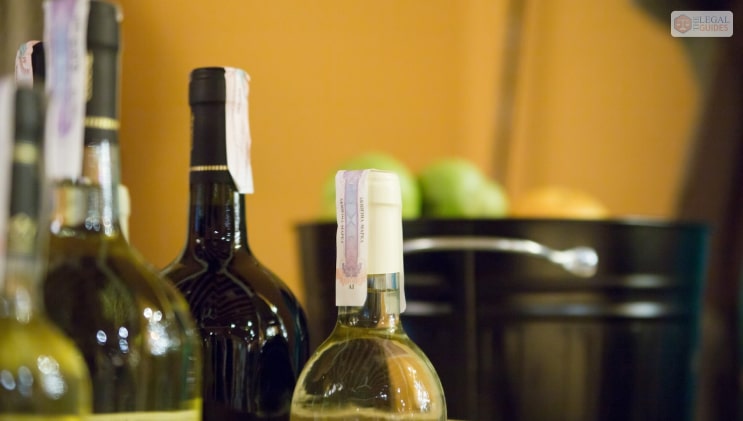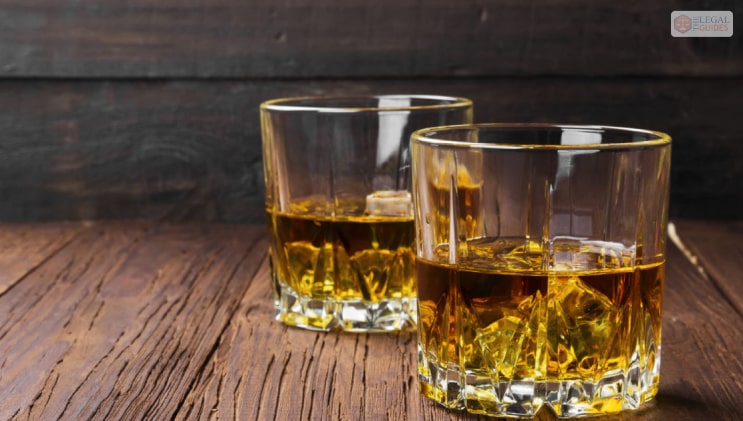

Did you know that underage drinking has been linked to disruptions in physical and mental growth in minors? Underage drinking has been linked to the early onset of sexual development, a tendency to develop sexual violence, road, and motor vehicle accidents , and increased risks of suicide and homicide.
The National Minimum Drinking Age Act was therefore drafted and enacted by Congress. It received President’s assent in 1984 when President Ronal Raegan signed it into law. The federal legislation was passed to prohibit the distribution and sale of alcoholic beverages to minors.
The Act gained prominence in the case of South Dakota v. Dole, 1987. The US Supreme Court held that the Act was constitutional in nature.
So, what is the minimum age requirement for Alcohol under this Act? How can the government punish you if you drink before that? Let us find out.

The National Minimum Drinking Age Act prohibits states from granting minors permission to purchase alcoholic beverages. It stipulates that funds allotted for the purpose of building state highways will only be disbursed if the state follows the regulations established under this Act.
The Act establishes that the legal age to publicly consume alcoholic beverages is 21 years. The states that do not follow the provisions will suffer as the federal highway apportionment allotted to them would be reduced by ten percent (eight percent since 2012).

Certain terms that we use on a daily basis can mean something particularly when it comes to federal law . The term “alcoholic beverage” has been defined in the Act.
Federal law clearly defines what beer in this Act can mean. Beer can include sake, porter, stout, lager, ale, and any other spirits produced by means of fermentation, using malt as the primary source.
This includes all forms of ethanol, alcohol, and spirits.
Wine can originate from any fruit and can be produced by any process.

The Act specifically prohibits minors from publicly possessing any alcoholic beverages. Any regulation is bound to have loopholes and exemptions. The same goes for the NMDAA.
Federal regulations have interpreted what public possession can mean and what can be excluded from it. The Act is not applicable to minors possessing alcohol in the following conditions. They are as follows.

Some religions forbid the use of alcohol and some stand indifferent to it.
However, some religions expressly allow for the moderate use of alcohol. Christianity holds that alcohol is a present from God. Alcohol is often a part of the Christian tradition. Known as sacramental wine, all church attendees are often seen to take a sip of the consecrated wine and bread after a mass.
Kiddush, in the Jewish tradition, are prayers recited by the Rabbi. Wine or grape juice is typically a part of such a ceremony.
The Act stipulates that minors publicly consuming alcohol , for this reason, will be exempted from the applications of this Act.

A minor’s alcohol consumption in public is not punishable under this Act if they are accompanied by a parent, a legal guardian, or a spouse. Each of these people should be above 21 years of age.

Any alcohol that has been prescribed by a doctor, a nurse, a dentist, a pharmacist, or any other institution of medical nature, is exempted from the purview of this Act. Such alcohol use can also be permitted when purchased as an over-the-counter medicine.

The National Minimum Drinking Age Act does not apply to conditions where alcohol is being consumed in private clubs and properties.
Law has always been designed to protect public interests at large. Thus, if a minor is indulging in alcohol consumption, while in their homes or other private properties, neither they nor their state governments can be punished. This applies as long as the minor does not drink and causes a menace to others.

A person who has:
Such a person cannot be held liable under the provisions of this act.
The National Minimum Drinking Age Act of 1984 is an example of federal legislation that aims to promote healthy social standards for its citizens.

The Act, despite what the name suggests prohibits the purchase of alcoholic beverages by minors. It does not lay down rules about consumption.
Under the provisions established by this Act, the purchase means to acquire alcohol by means of money or other forms of consideration.

The USA is a federal state. A federal law when passed, can take some time to be approved by the states and to come into effect. Therefore, the Act stipulates that any state that disregards the provisions under this act will face a 10% decrease in highway funds.
If such penalties were not imposed, some states would have the option to not impose the law in state legislation. Let us now look into the penalties in a bit more detail.
The Secretary has been given the power to withhold highway funds by 10 percent if the state law makes it lawful that minors(below 21 years of age) be allowed to purchase alcoholic beverages.
If states declare it unlawful for minors to purchase alcoholic beverages, then they will be declared to be in compliance with the law and the funds will be disbursed at the beginning of the fiscal year.
The history of the National Minimum Drinking Age Act of 1984 can be traced back to the US from 1920 to 1933. Commonly known as the period of prohibition, it was the time period when the production, sale, transportation, and distribution of alcoholic beverages were banned in the nation.
The 18th Amendment to the United States Constitution banned all dealings with alcohol in the nation. However, the ban was soon uplifted by the 21st Amendment to the US Constitution.
Minimum drinking age laws have been around ever since.
Do let us know if you found the article helpful!
Read, comment, and keep visiting for more interesting legal content!
Read Also: